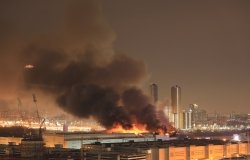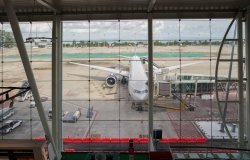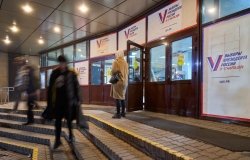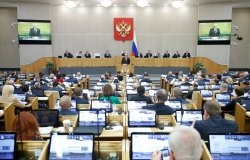
A blog of the Kennan Institute
Transit: Belgrade
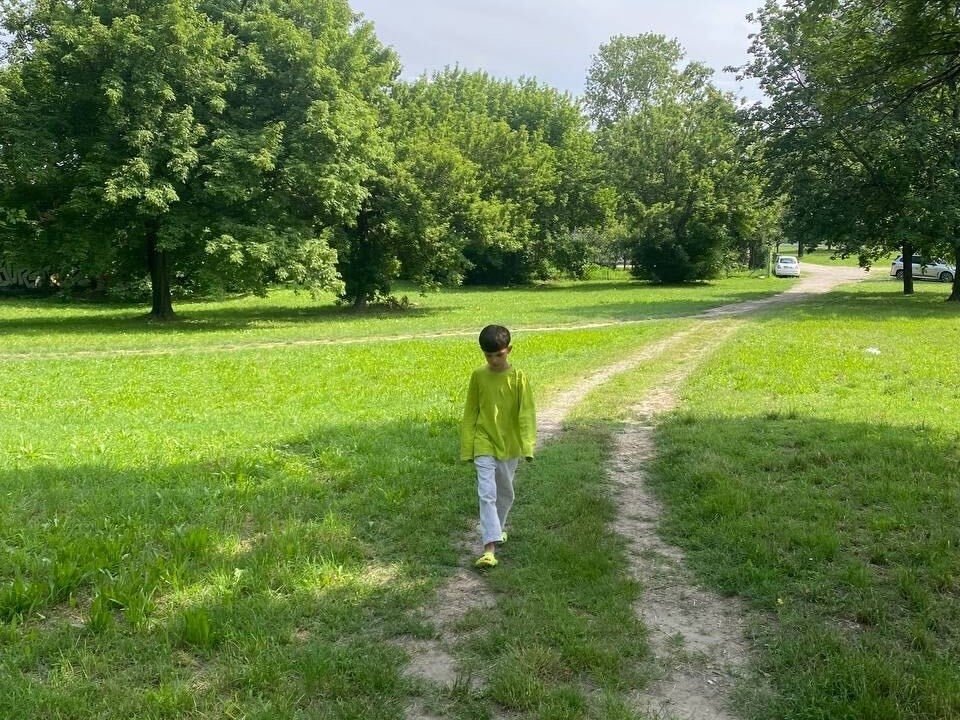
Courtesy of Sasha
Sasha, age thirty-six; Eric, six
“We were planning to move, all three of us: me, my son, Eric, and my partner, Misha. But Misha is now writing scripts for porn films in Buenos Aires, while Eric and I stayed here in Belgrade,” says Sasha. Sasha is one of the founders of the Moscow Running School. Back in Moscow, she used to be a brand ambassador for Nike.
On February 24, 2022, Sasha and her son were visiting friends in Crimea. “How creepy does that sound? These friends had been living there a long time. They have two passports, Russian and Ukrainian.” That day Sasha and her friends went to the movies. The idea was to keep the children busy, but the adults were too distracted and unfocused to enjoy it. “Then we went to the Armenian church. I didn’t know what to do, and getting out of the house always helps. Eric said a funny prayer there—well, funny and not funny. He said, ‘I want the war to end, Putin to die, and me not to beat or bite anyone in the kindergarten!’”

Courtesy of Sasha
Air travel to and from Crimea was shut down immediately, so Sasha bought train tickets.
“The train ride took three days. We ended up in a compartment with a giant, unsympathetic man. He talked about his imprisonment and said that children should be beaten, while Eric kept drawing Putin in a bunker with bombs falling all around. I had a feeling that the two realities, the one at hand and the imagined one, will collide, and something bad will happen. Eric and I spent most of those three days in the dining car.”
By the end of February, Sasha had tickets to Belgrade, Serbia, where she was supposed to reunite with Misha, who by that time had been traveling for several weeks. “I told Eric’s dad that we were leaving. He was angry that I had made a decision and presented him with a fait accompli. In the end, he arrived two days after us.” Sasha and Eric’s father share the child’s care but are financially independent of each other.
“I didn't care where I went. And then Eric’s dad said that he would actually like to go to Spain and asked whether I was ready to go there as well. I couldn’t think straight. I had my return tickets to Russia. But I brought Eric’s bike with me too. I think it was clearer to Eric’s dad than to me that we would be away a long time.”
Now, more than a year has passed since the beginning of the war, and Eric’s dad is finally preparing to leave for Spain. “I realized that I had fallen in love with Belgrade. I fell in love with the place and the people there. I have a job there. I don’t want to go anywhere. And I probably won’t. We are arguing a lot about it now, but I think we will figure it out.”
Sasha found a nice apartment. “During the summer everything was changing so quickly that it seemed that come fall, it would all be completely different. In addition, at first it seemed that everything was about to end, that this could not last.”
In December 2022, Sasha quit her corporate job and decided to start the business of her dreams, an agency for photographers. “I quit, I had $8,000 and no work. And I also realized that I couldn’t work for a Russian business. I didn’t want to earn money in Russia. I found a job with a dating app. I want to work here in Serbia.”
Sasha has a brother and a mother. Her brother and his family went to Argentina. Her closest friends are in Tel Aviv, Israel, and Yerevan, Armenia. But Sasha decided to stay in Belgrade, for a couple of reasons. When Eric’s dad leaves for Spain, she needs to be reachable. And Sasha fell in love with Belgrade.

Courtesy of Sasha
“I have my own communities, because in general I live my whole life among communities. I have already built my little running community here and on Sundays there are thirty to forty people that I can just chat and run with. I have always dreamed of working with children. I went to a children’s studio to help them with SMM and marketing and started to freelance for them. They are absolutely my kind of people.
“Therefore, on the one hand, I miss my friends, but I’ve already built my life here. I was called to help as a producer on a project called Drugdrugu. The goal is to help the Russian-speaking and Serbian-speaking communities interact. They live in separate bubbles. That’s what I’m interested in from a professional point of view because I was involved in communities.
“I have a huge natural curiosity about how the city works, what it looks like, where you can go. I need to know the places. Even if I don’t go there, it’s important for me to know where such-and-such a street is, where such-and-such a restaurant is, where the coolest park is, where the beach is. I want to meet a lot of people, at least find out what kind of people are there. And this knowledge gives me a sense of stability in a new country.
“My son and I are out and about constantly. We’ve gone to Chinese markets, to some Japanese gardens, to some beaches. I would pick a place on the app and we would go there by bus and see what was there. There is my coffee shop where I know everyone, there is my market near my house. My way of surviving is to know my neighborhood well, to know my streets and street corners well, and to say hello to people and have a word with them, always building my communities.”
Sasha likes that the Serbian language is similar to Russian, that many people speak Russian. She even likes the fact that the Serbs are ambiguous about Putin’s policies. Why? “I think there is a glimpse of the future in this. Like something familiar, but with the hope of democracy.”
Now Sasha is thinking of selling her Moscow apartment and buying a house in Serbia to live with her son, her mother, and her many cats.
The opinions expressed in this article are those solely of the author and do not reflect the views of the Kennan Institute.
See our newest content first.
Subscribe to receive the latest analysis from the Russia File blog.
About the Author
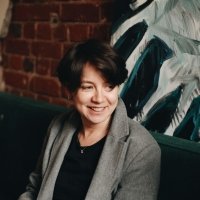

Kennan Institute
The Kennan Institute is the premier US center for advanced research on Russia and Eurasia and the oldest and largest regional program at the Woodrow Wilson International Center for Scholars. The Kennan Institute is committed to improving American understanding of Russia, Ukraine, Central Asia, the Caucasus, and the surrounding region though research and exchange. Read more




